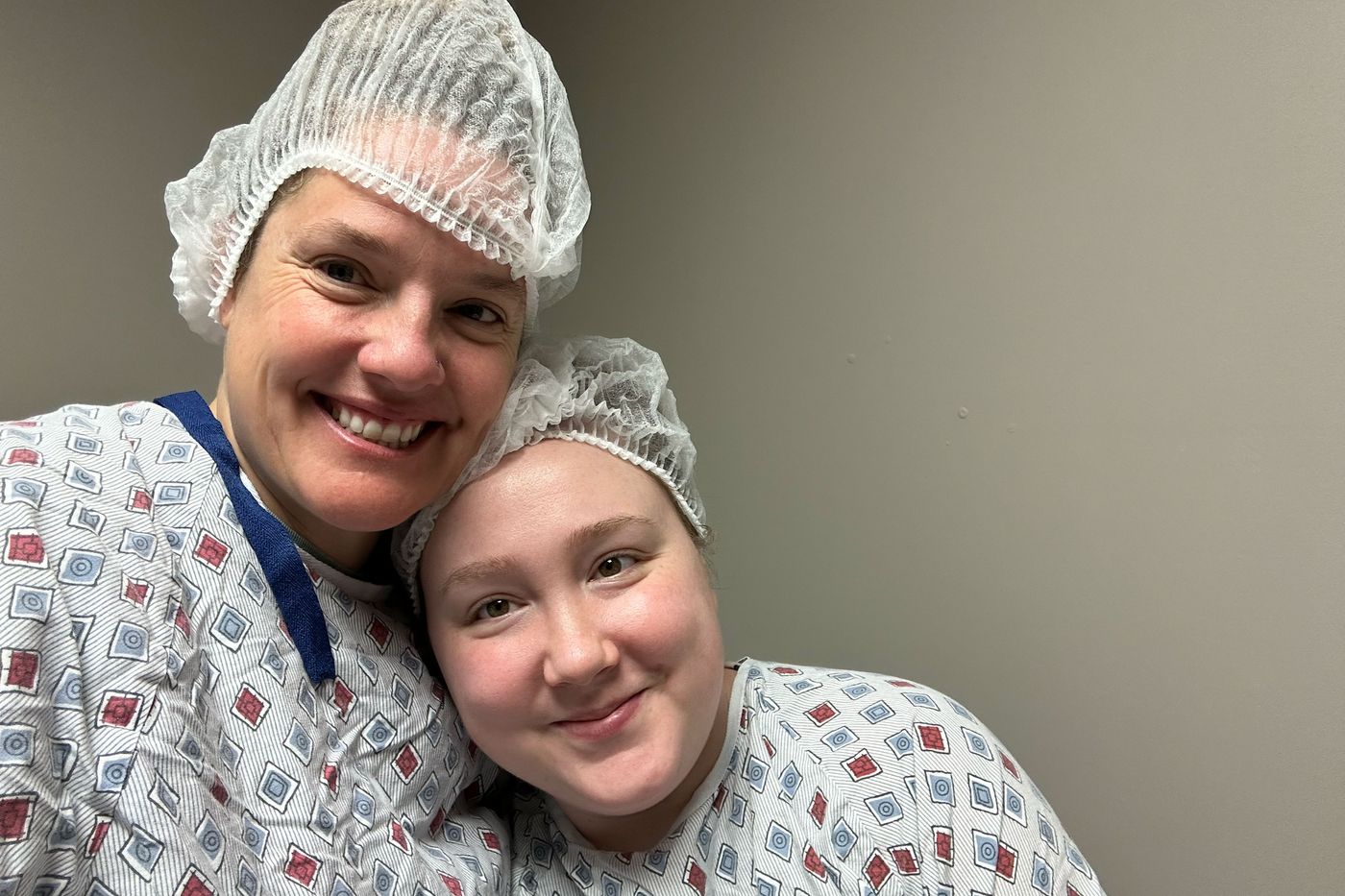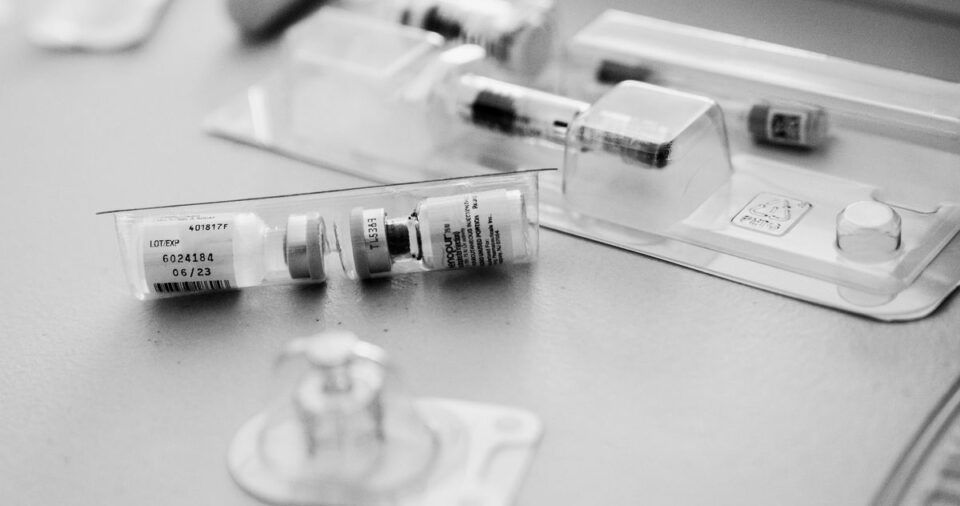Caroline Veazey woke up in a panic on Thursday and immediately started searching for any new statements from fertility clinics in the state of Alabama. It had been six days since the Alabama Supreme Court released a decision declaring frozen embryos as children under Alabama law, and she had six embryos she was trying to get out of the state as fast as possible. The day before, 30-year-old Veazey and her fiancée, 38-year-old Kandis Pulliam, spent the entire day making calls and sending emails. Veazey got a quote for shipping frozen embryos of $780, not including insurance or other fees. She set up a GoFundMe to help with the total cost of moving the embryos to another state, and then eventually — hopefully — for travel expenses of going to that state for fertility treatment. They are now in limbo, scrambling to gain access to their own biological material and hang onto hope of conceiving. Veazey, who has already lived through the physical and emotional pain of egg retrieval, is afraid her embryos won’t be able to get out of the state. “If that happens, I think I’m going to end up in a mental hospital and that is not exaggerating,” she said.
A friend told Veazey that she used the transportation company ReproTech to move her own embryos. After calling, and calling, and calling, Veazey got someone from ReproTech on the phone, who pointed her to the paperwork she would need to fill out as quickly as possible to move the embryos from where they were stored at her clinic in Birmingham. The person on the phone was reassuring. Veazey said the representative told her that ReproTech had a companywidemeeting that week and everyone had been in agreement on prioritizing customers trying to move materials out of Alabama, where fertility clinics were shutting down IVF services, falling like dominoes one after the other, in light of the ruling. No one knew who would be next.

Veazey then called the Alabama Center for Reproductive Medicine, the clinic where her embryos were stored. Once Veazey got the embryologist on the phone — after makingseveral calls and leaving two voicemails — the embryologist told her that the clinic’s release forms were being revised by corporate, and the paperwork wasn’t ready yet. She didn’t know for sure when it would be, but likely not by Monday. “We were like, excuse my language, ‘What the actual fuck,’” Veazey said. “I’m so frustrated because now I can get all of the shipping coordinated and they’re trying to get them out for me as soon as they can. But my stupid clinic is just taking their time with paperwork, and until I can sign paperwork, they can’t go anywhere.”
IVF patients I spoke with in Alabama are facing this same sense of panic, and the endless reshuffling of logistics since the court released its decision. In its wake, IVF clinics and hospitals began canceling procedures, sometimes even if they had already been scheduled. Only two providers have since resumed services. The logistics of IVF can be overwhelming — even before the surprise court decision. Scheduling daily blood draws and ultrasounds; receiving calls from the clinic about next steps; waiting to hear when egg retrievals and embryo transfers can be scheduled; and what medications you’ll need to take, how often to take them, and how to buy them is an incomplete list of what an IVF patient may need to manage. Paying for it all may include another set of logistics. Patients I spoke with used insurance, savings, family money, and considered loans. The emotional roller coaster of it all can also be difficult to navigate, sometimes after years of heartbreak of trying to conceive.
Hannah Miles, 29, was in the middle of an IVF transfer cycle when the news broke. After three years of trying to get pregnant and a failed embryo transfer in January, she was scheduled for another embryo transfer in March. As of Friday — she kept saying that all she could say was “as of today” — it was still on. Her clinic, Alabama Fertility, has so far continued cycles that were already started but stopped scheduling any new ones. “I have reached out to them because do I keep shooting myself up with this Lupron? Do I need to take these birth-control pills, still? Is this still happening? I mean, just in a panic,” she said. This is the last embryo she has stored. “Those were our two little shots until we found the money to do another egg retrieval,” she said. When, where, and how she would do another are questions she doesn’t yet have answers for.
I’m frustrated and there are moments of sadness, but then it goes right back to rage.
No one seems to have answers for these patients. One patient undergoing IVF who wanted to remain anonymous because she works at a fertility clinic that had shut down services was just as much in the dark. She is 41, and she’s had more than five miscarriages. “This isn’t something that can wait until next year for me,” she told me over text. Six days after the Supreme Court decision came down, the same day Veazey and Pulliam were making call after call, she found out her four frozen embryos were not viable. They are now frozen sitting in storage, and she doesn’t know if she is going to need to implant them regardless or freeze them indefinitely. She has another egg retrieval scheduled, but she doesn’t know what’s going to happen with that, either. She’s been crying all week.
Chelsea Kramer currently has a fridge door full of medication she paid thousands of dollars for that she can’t use yet. She had been set to start a new round of IVF on February 9 to try to conceive her second child. Due to a certain hormone being too high, her clinic pushed back the start date of her cycle. If she had started it then, her clinic would — so far — allow her to continue her treatment. But instead, she got a call on Tuesday last week that Mobile Infirmary, the hospital associated with her fertility clinic, had halted all egg retrievals scheduled for March. Hers was canceled.
Kramer, 36, has searched for clinics that would accept her fertility benefits within a 250-mile radius. The closest is in New Orleans, three hours from where she lives with her husband and daughter. Kramer works full time as an emergency-room nurse, and requests to change her schedule are due a month in advance. “You do your best to schedule your life around it,” she said. “A lot of people don’t understand all of the monitoring appointments. And, yes, they are short, but you have to get there and you have to potentially be late for work or request off work. And it’s just really frustrating.” She doesn’t want to travel three hours away for treatment. “Who would?,” she said. Her egg-retrieval cycle has been rescheduled for April, in Alabama.
For weeks, Veazey and Pulliam watched their options slowly disappear. ReproTech sent the couple an email saying that they had paused shipping embryos into or out of Alabama. “I’m frustrated and there are moments of sadness, but then it goes right back to rage,” said Pulliam. Other transport companies told them the same thing. That was until February 28, when Veazey signed paperwork with CryoFuture, a shipping company willing to do rush shipping to move her embryos to California. The cost was under $1,000, plus the $95 she opted to pay for extra insurance. “Why in the world would I not want to get them out of Alabama as soon as possible?” That night, she signed and mailed the updated release paperwork to her clinic so the embryos could begin their journey. “There was no tracking number, which isn’t great for an anxious person like me,” she said.
Yet the couple’s fears are finally calmed. The embryos arrived in a storage facility in California on March 8, three weeks after the Supreme Court’s decision. She got confirmation they arrived while on her way to meet friends for dinner. “It just felt like weight had come off of my body,” she said.
This story has been updated.
Related
- Alabama Ruled Frozen Embryos Are Children — Now What?
Rae Nudson , 2024-03-12 17:45:00
Source link


